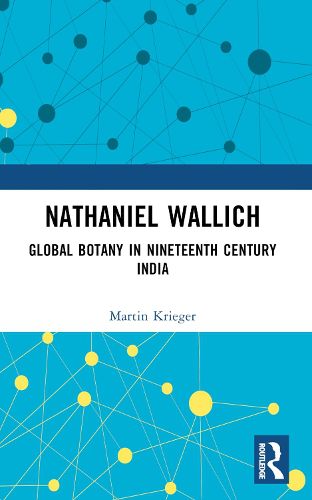Readings Newsletter
Become a Readings Member to make your shopping experience even easier.
Sign in or sign up for free!
You’re not far away from qualifying for FREE standard shipping within Australia
You’ve qualified for FREE standard shipping within Australia
The cart is loading…






In March 1807, Nathaniel Wallich, a young Danish surgeon left his home in Copenhagen towards India. During the troubles of the Napoleonic Wars, it was not possible to foresee, that he was to emerge as one of the most prominent nineteenth century botanists.
Wallich spent most of his adulthood in India and, as the long-time superintendent of the Calcutta Botanic Garden, gained extensive expertise on Indian flora. A truly global communication network emerged from his desk facing the River Hooghly, reaching out to eminent specialists as well as amateur researchers long forgotten today. He conducted research trips to Nepal, as well as to South East Asia and may be perceived as one of the founding fathers of tea production in Assam.
This book is based on the enormous correspondence of Wallich, preserved in libraries across Calcutta, London, Copenhagen, Hamburg, Munich and many other places. It aims to approach a long career marked by biographical ruptures and contradictions, but at the same time by continuity. It furthermore explains the tight links between supposedly neutral botanical studies and the emergence of British colonial power in India.
$9.00 standard shipping within Australia
FREE standard shipping within Australia for orders over $100.00
Express & International shipping calculated at checkout
In March 1807, Nathaniel Wallich, a young Danish surgeon left his home in Copenhagen towards India. During the troubles of the Napoleonic Wars, it was not possible to foresee, that he was to emerge as one of the most prominent nineteenth century botanists.
Wallich spent most of his adulthood in India and, as the long-time superintendent of the Calcutta Botanic Garden, gained extensive expertise on Indian flora. A truly global communication network emerged from his desk facing the River Hooghly, reaching out to eminent specialists as well as amateur researchers long forgotten today. He conducted research trips to Nepal, as well as to South East Asia and may be perceived as one of the founding fathers of tea production in Assam.
This book is based on the enormous correspondence of Wallich, preserved in libraries across Calcutta, London, Copenhagen, Hamburg, Munich and many other places. It aims to approach a long career marked by biographical ruptures and contradictions, but at the same time by continuity. It furthermore explains the tight links between supposedly neutral botanical studies and the emergence of British colonial power in India.